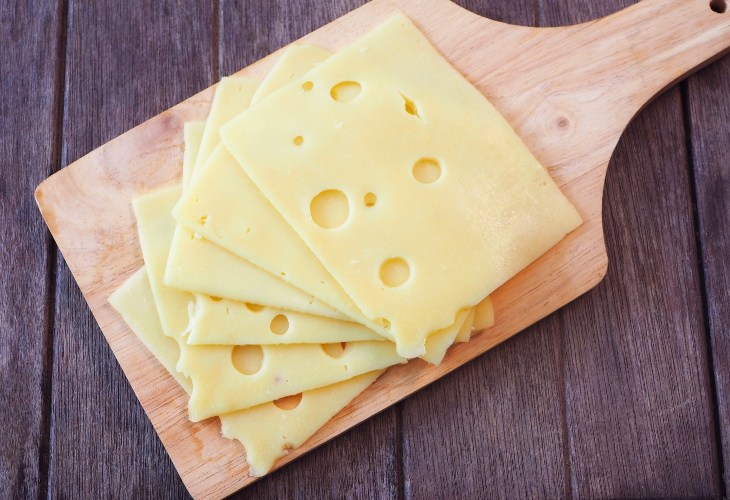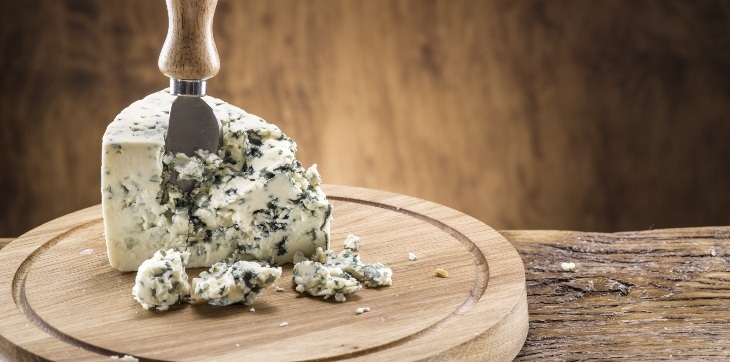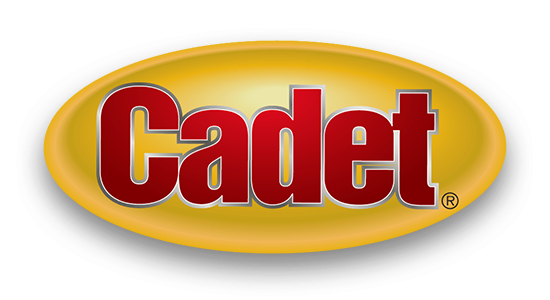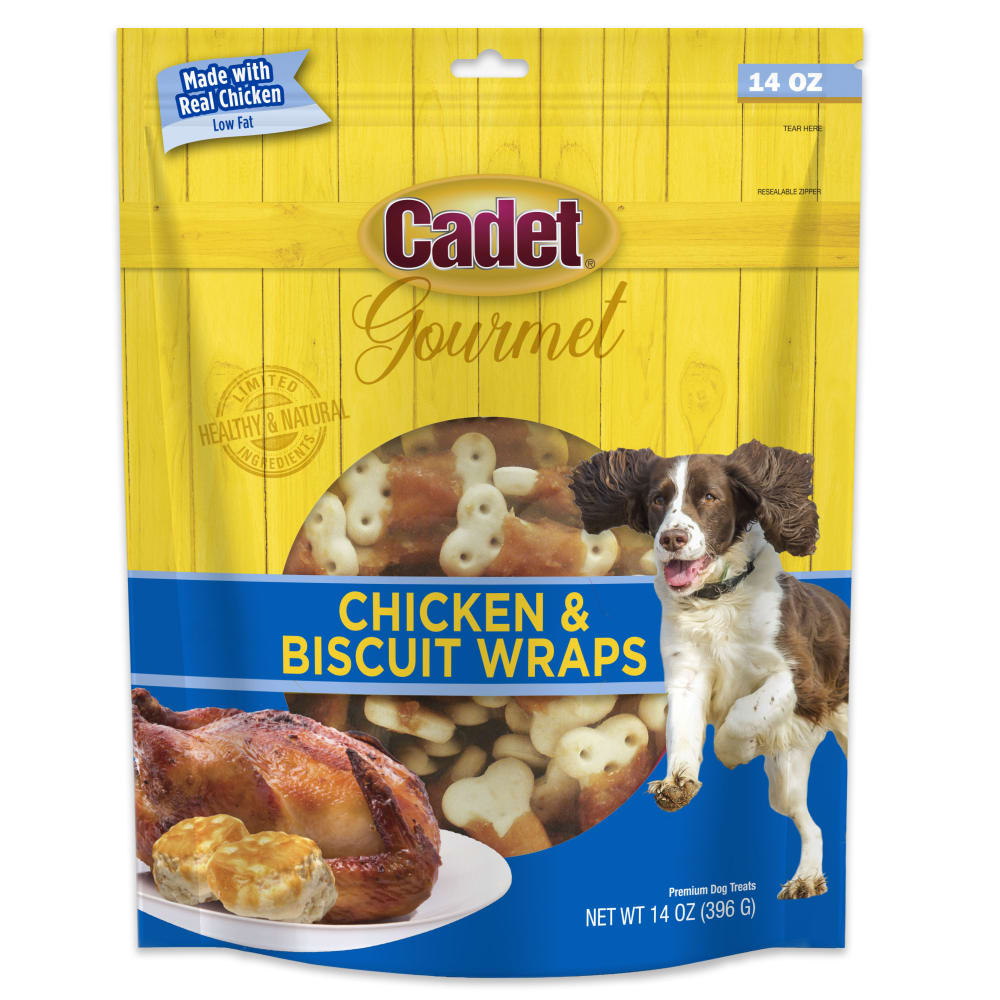Can Dogs Eat Cheese? Here Are the Safest Varieties
Just about any food you grab from the refrigerator or pantry will capture your dog’s attention, but there’s one snack that’s sure to have them begging for a taste—cheese! Those savory aromas and rich, creamy textures are too tempting for many four-legged friends to ignore. When your dog’s hungry eyes look up at you, it’s only natural to wonder…
Can Dogs Eat Cheese?
Yes, most dogs can safely enjoy many types of cheeses! Not only does it make a delicious snack, but many cheeses can be good for dogs; calcium, protein, vitamin A, essential fatty acids, and B-complex vitamins are found in most varieties. Cheese also tends to be high in fat, though, so it’s best to treat in moderation—especially if you’re trying to manage dog obesity.
Just like people, some dogs are lactose intolerant and should avoid cheese. If your four-legged friend experiences diarrhea, bloating, vomiting, or excessive thirst after consuming dairy products, it’s wise to leave cheese to the other members of your family.
Best Ways to Give Your Dog Cheese
Indulging your dog with cheese can benefit both of you! It’s an excellent obedience training treat, as most dogs will eagerly learn commands for a piece. Use cheese-flavored treats or break a slice of cheese into small pieces for an irresistible reward. If you want to occupy and entertain your best friend, surprise them with a long-lasting dog chew with cheese filling.
Have a picky eater? Sprinkling a small amount of grated cheese over your dog’s food can make it more enticing! You can also wrap your dog’s medicine in a piece of cheese for less of a fuss.
If you have a puppy, only give them small pieces of cheese at a time. Their belly is more sensitive than that of an adult dog, and giving them too much cheese can cause an upset stomach.
Best Types of Cheese for Your Dog

While dogs can eat cheese, some varieties are healthier than others. Here are the best picks for your four-legged friend.
American cheese: Let’s start with a classic! American cheese is high in vitamin D, which helps promote healthy bones. It does have high sodium content, however, so you’ll want to feed in small quantities and make sure your dog’s water bowl is full.
Swiss: That iconic holey texture makes Swiss one of the world’s most recognizable cheeses. Your dog will appreciate its nutty flavor, and their body will appreciate the L-tryptophan, vitamin A, and vitamin B-12 it provides.
Cheddar: If you want to offer a lower-sodium alternative to American cheese, cheddar is the way to go. This savory cheese ranges from mild to sharp and offers a good source of vitamin A and vitamin K.
Mozzarella: This soft Italian cheese is a crave-worthy delight! Mozzarella is also lower in fat than many other cheeses, making it a smart choice for training and rewarding.
Cottage cheese: With its super-creamy and curdled texture, this snack may have you wondering: can dogs eat cottage cheese? Good news! Dogs can eat cottage cheese, which is rich in nutrients and low in calories and sodium. Plus, its low lactose content makes this cheese especially easy on the stomach.
Gouda: Another low-lactose cheese, gouda is known for its sweet flavor and soft texture. It’s a bit higher in fat than some of the other varieties on this list, so make sure you don’t overdo it!
Parmesan: Whether it’s grated or sliced, parmesan offers a uniquely sharp and tangy flavor your dog will love. This hard cheese is also rich in phosphorous, which promotes strong teeth and bones.
Related: Healthy Human Food for Dogs
Cheeses Your Dog Should Avoid

Not all cheese is good for dogs. Make sure your Cadet doesn’t sneak a taste of these varieties.
Blue cheese: While you may enjoy this cheese crumbled up in salad or as a creamy dipping sauce, it can be dangerous to dogs. The fungus in blue cheese contains roquefortine C, a substance that can lead to diarrhea, vomiting, or seizures in dogs.
Cream cheese: Although cheeses naturally contain fat, cream cheese contains a very high fat content. This cheese isn’t toxic to dogs, but it can contribute to weight gain and is best left at the kitchen table rather than in your dog’s food.
Cheeses with added ingredients: Some varieties of cheese contain ingredients that are toxic to dogs, such as garlic, onion, or chives. Always check the label before giving your dog cheese to ensure it’s free from harmful additions. It’s also a good idea to avoid giving your pup cheese-flavored human snacks, as they often include dangerous or unhealthy ingredients.
Cheese, Please!
Your four-legged friend will be happy to know they can sample a wide range of cheesy flavors. Whether you’re making a sandwich, preparing snacks for a party, or just looking for a great way to treat or train your dog, feel free to reward them with one of these tasty cheeses.
Dogs can eat cheese, but this isn’t the only salty human snack they crave. Find out if dogs can eat beef jerky and how dogs can enjoy nuts!




